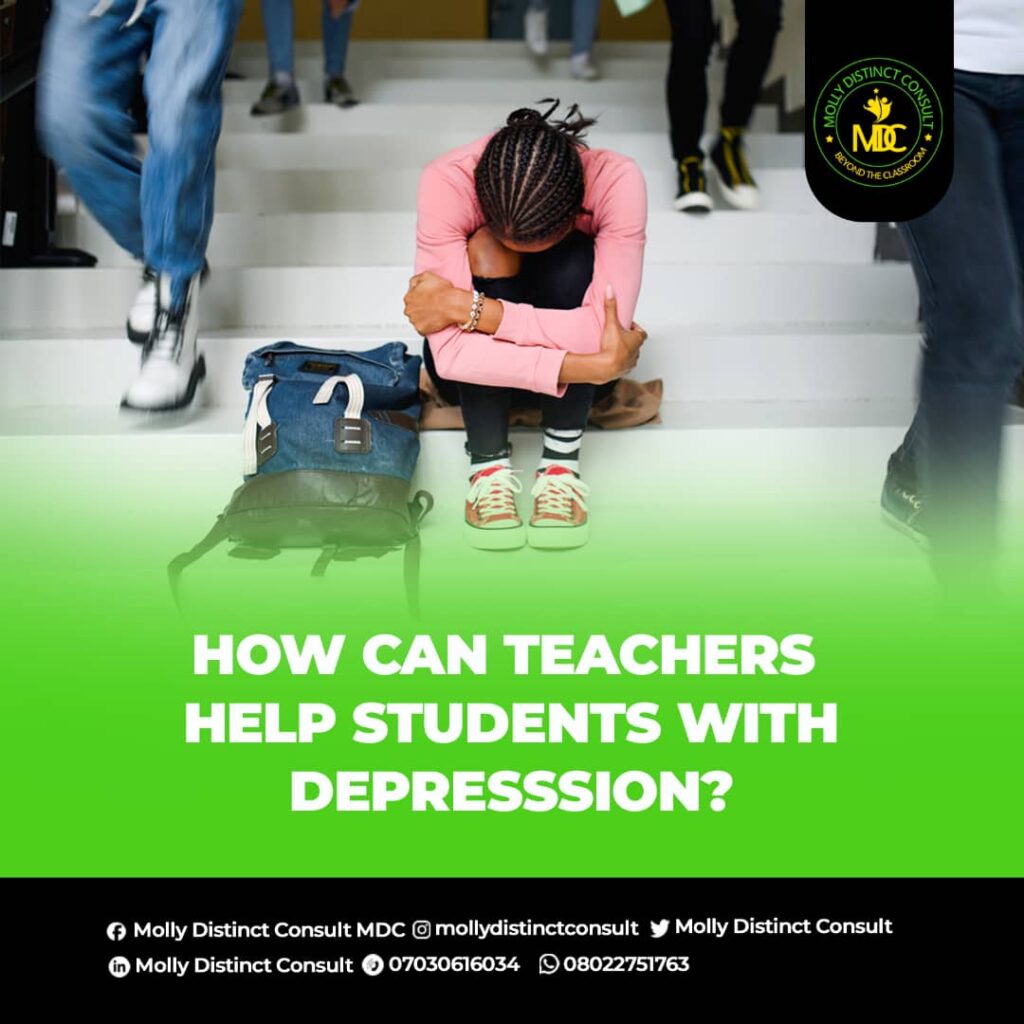
HOW CAN TEACHERS HELP STUDENTS WITH DEPRESSION?
HOW CAN TEACHERS HELP STUDENTS WITH DEPRESSION?
Although depression is a frequent occurrence among adults, it has become commonplace to find young people showing symptoms of depression. Several times, teachers have had to deal with students who show common signs of depression.
Handling depression at any level requires a therapist but teachers have to sometimes combine teaching duties with being a therapist to help these students find their way out of depression. Depression among students can be traced to several factors such as the absence of parental care, family complications, bullying in school among others. How can a teacher identify a student with depression?
What are the symptoms of depression in students?
A teacher is expected to be observant of student behavior during and after classes. Notable signs to look out for include.
- The student gets easily tired and disinterested in physical activities.
- Lack of emotional expressiveness.
- The student may show timidity or reclusiveness.
- High propensity to express negative emotions such as anger or irritability.
- Forgetfulness and lack of organization during tasks.
- An unusual eating habit which could be anorexia or binge feeding associated with distress.
- The student may begin to consider suicide.
These symptoms manifest practically as low self-esteem, lack of zeal to take class tests or do homework, irritability towards teachers and other students, very short attention span, frequent headaches, defiant to rule and authority, making pessimistic quotes about life, unethically moral behavior such as the consumption of alcohol, pilfering, etc., and withdrawal from other students or group activities.
How can you help?
The first thing you should be aware of is that you are only human and that means you are very limited in influencing people’s minds. You can only try to help the student out of depression, you cannot cure them. So don’t get too hard on yourself or the student. However, these steps can help you and the student.
- Speak to their parent(s) about it: many depression cases among students have been traced to home-related courses, it is only pertinent to involve the parents or any parent-figure in their lives. Also, it is reported that communication between parents and schools resulted in improved student participation in school activities by drawing on their personal experiences, making parents aware of activities that go on in class, and reporting on progress (Davern, 2004).
- Establish a relationship with the student: if you had no deep connection with the student before, this is a good time to make it happen. If there has been one before, perhaps you have to take it further. You can ask questions about their welfare without making them feel that they have erred. Questions such as “You were great at your assignments the last term. These days, you’ve not been so good, what’s happening?” Having brief conversations with the student after classes is a great way of establishing relationships. However, you have to be kind enough to listen to them and make them know that their worries and fears are valid. If all these don’t just click between you both, you could refer a kind teacher to help you out.
- Create room for social interaction: one notable sign of depression is prolonged solitude. However, engaging the students with activities they enjoy especially those that entail being part of a team can help depressed students feel better. You could help the student to make a choice by ensuring that they find themselves among cooperative students.
- Create a supportive atmosphere: sometimes teachers are so fixed on the shortcomings of students but an emphasis on the misdeeds of a depressed student will only worsen the situation. Always remember to appreciate any kind deed done by them, praise their achievements, and be vocal about their good habits. Such affirming words can help them find their sense of identity and self-esteem.
- Be lenient with study tasks: because their attention span is reduced, coordination disturbed and energy level lowered, these students may take a longer time to finish tasks or may not even finish them at all. You can give them tasks that are easier to understand while you monitor their progress, offering help where you can.
- Deal with the student’s suicidal thoughts: in some cases, these students tend to contemplate suicide as an escape. You may find them saying things like “everyone hates me, why don’t I go somewhere and never return?” Don’t try to be hard on them while confronting these statements, nobody agrees with your contrasting opinion if you do not appear to agree with theirs at first. So you must be gentle and mild though firm on positivity.
Final thoughts
It is never an easy experience having to train a student suffering from depression that’s why great teachers are concerned about helping depressed students get on to their best moods. However, while you consider using the outlined steps to help the students, it is important to discover the root cause of the depression and solve it from there.
About Molly Distinct Consult
Molly Distinct Consult is a teacher recruitment and training outfit famed for solving professional teacher search and recruitment for premium schools across Nigeria. With several mind-blowing testimonies in her archive, Molly Distinct Consult is currently registering teachers (Nigerian and Non-Nigerians) who wish to teach in premium schools in Nigeria. Kindly note that for non-Nigerians, accommodation is provided and salary is paid in US Dollars. Register with Molly Distinct Consult here
References
- Davern, L. (2004). “School-to-home notebooks: what parents have to say.” Teaching Exceptional Children, 36(56), 22-27.